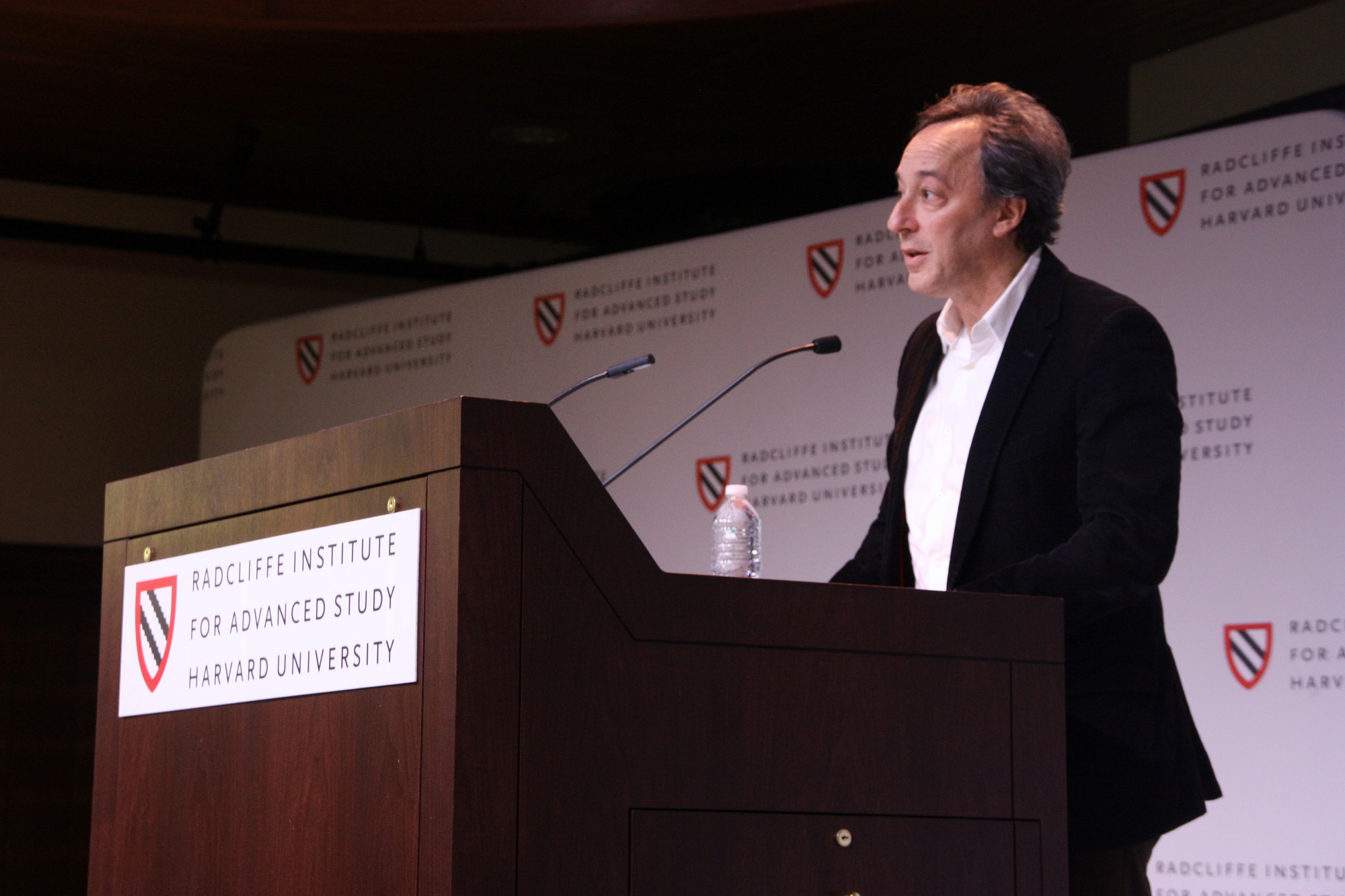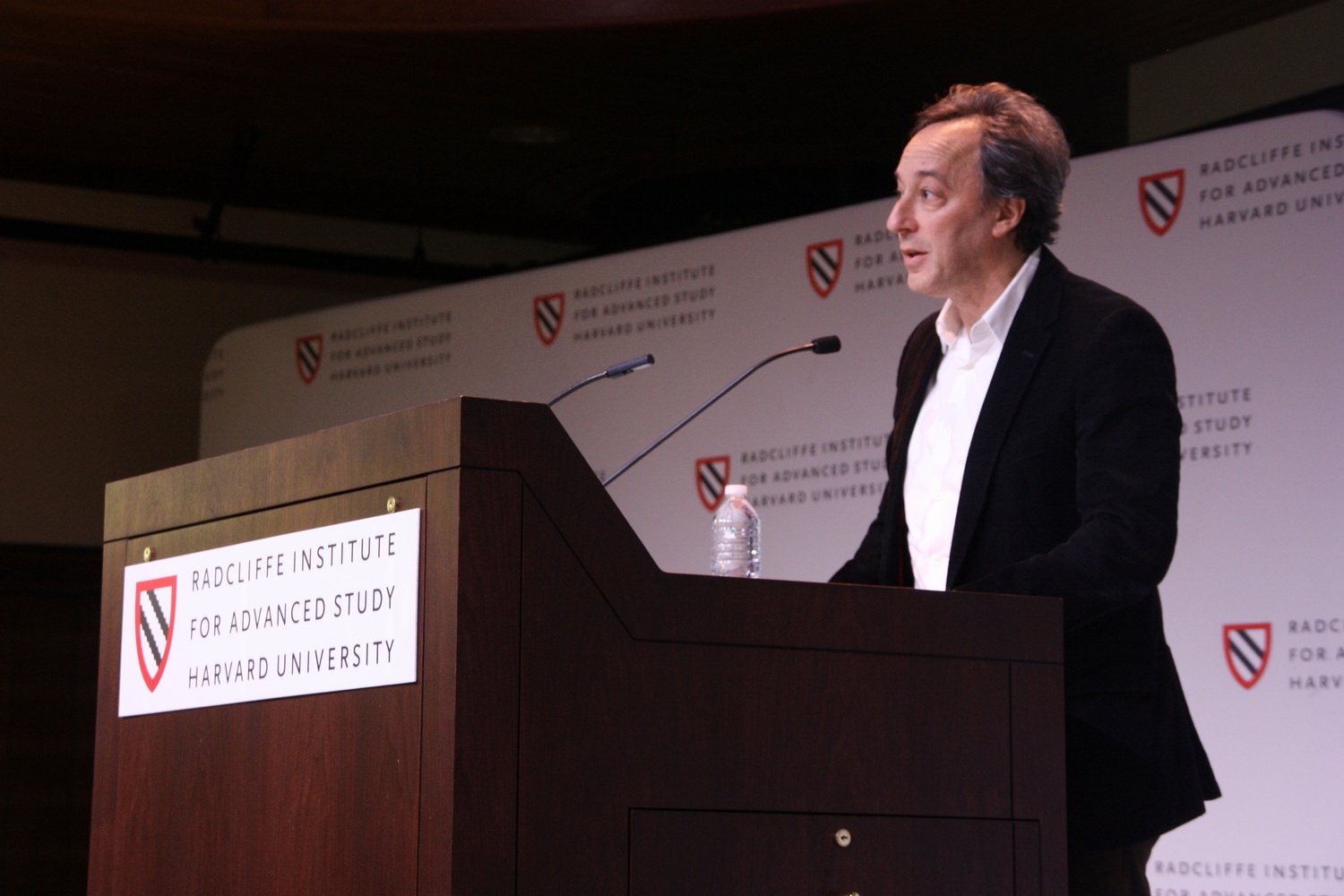
News
Summers Will Not Finish Semester of Teaching as Harvard Investigates Epstein Ties

News
Harvard College Students Report Favoring Divestment from Israel in HUA Survey

News
‘He Should Resign’: Harvard Undergrads Take Hard Line Against Summers Over Epstein Scandal

News
Harvard To Launch New Investigation Into Epstein’s Ties to Summers, Other University Affiliates

News
Harvard Students To Vote on Divestment From Israel in Inaugural HUA Election Survey
Architecture Critic Lectures on 'The Politics of Public Space'


New York Times architecture critic Michael S. Kimmelman discussed the design, occupation, and politics of public spaces, from parks to public transportation systems, in a lecture at the Knafel Center Thursday.
“So much of life in a city is spent in public spaces…. To me public spaces are integral to how we live, and the subject of architecture is also really about how we live,” he said in an interview before the lecture, which was open to the public and entitled “The Politics of Public Space.”
Kimmelman, who received a graduate degree in art history from Harvard in 1986, began his lecture with a description of his morning commute, detailing how every stop on his journey from his residence to Penn Station involved public spaces. He said his interest in public spaces stems from growing up in New York City and spending much of his life in public spaces.
He then discussed the political aspects of public spaces, such as efforts to create public spaces in the United States. One of the examples of successful public spaces he cited was former New York City Mayor Michael R. Bloomberg’s closure of Broadway to automotive traffic at Times Square, which helped to open the area to pedestrians. Kimmelman noted that commercial rents have doubled in that area after Bloomberg’s decision.
Kimmelman also criticized the trend of urban sprawl in U.S. cities and discussed how other cities are adopting sprawl as a model.
“Too many cities around the world are growing not denser, but larger, sprawling, by adding suburban-style gated subdivisions,” he said.
As part of his analysis of sprawl, Kimmelman examined gated communities in Cairo, commenting on the 6th October Bridge, an automobile bridge next to Tahrir Square in Egypt.
Kimmelman talked about the relationship between public spaces and protests as well, such as the Occupy Wall Street Protests as well as other recent protests in Egypt, Turkey, and Brazil.
“Occupiers tend towards places like Zuccotti [Park in New York City] and Gezi [Park in Istanbul], places that look jammed and bustling with a few hundred people because the same crowds in Central Park would look puny,” he said.
Following the lecture, Graduate School of Design Dean Mohsen Mostafavi, who introduced Kimmelman to the audience at the beginning of the talk, praised the architecture critic.
“Michael has really distinguished himself over the last 15 years, taking on board critical issues that affect our lives socially, politically, economically,” he said.
—Staff writer Vimal S. Konduri can be reached at vimal.konduri@gmail.com.
Want to keep up with breaking news? Subscribe to our email newsletter.
